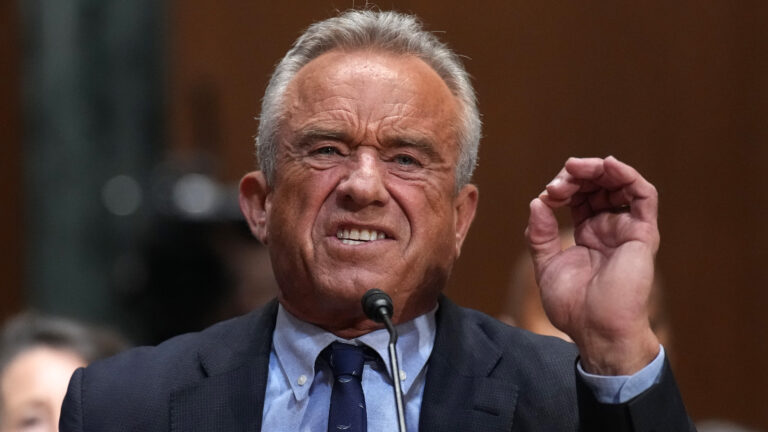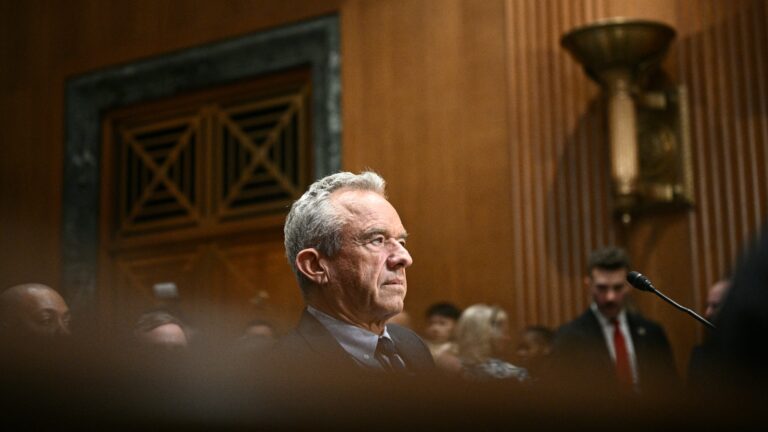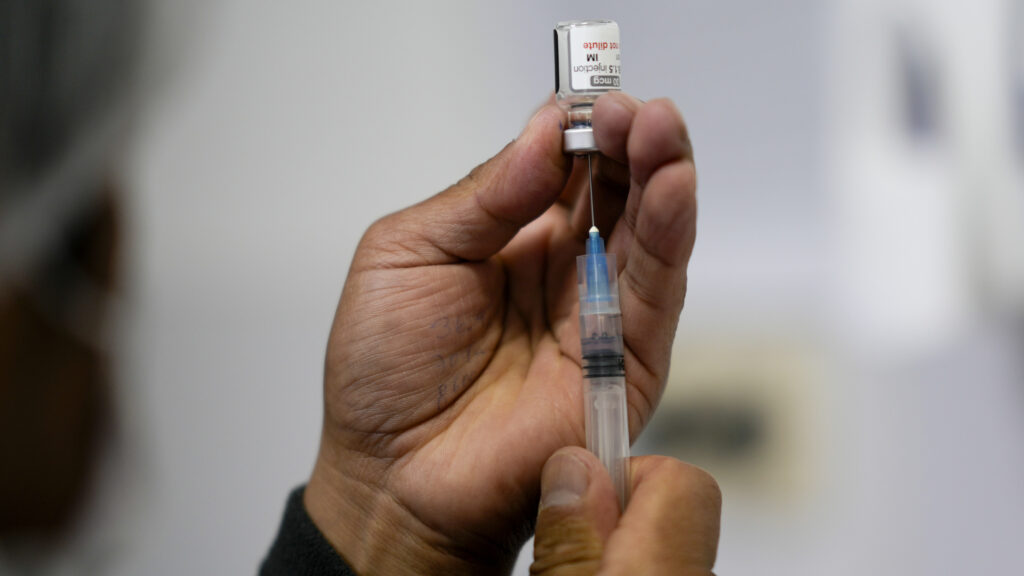The public discourse on vaccines has been distorted by a relentless and misleading demand for data that is already available, elusive, impractical, or unnecessary. This strategy is regularly deployed by the Trump administration: insisting that science is incomplete, that manufacturers and past regulators are hiding the ball, and that nothing can be trusted until “more data” is produced — no matter how much has already been made public.
This is not a genuine search for truth. It is a calculated strategy to erode public confidence in the very institutions responsible for safeguarding health. It represents a form of gaslighting that undermines public trust and overrules sound scientific practice.
Throughout 2020, President Trump heralded the rapid development of Covid-19 vaccines under Operation Warp Speed as “a monumental national achievement” and “somewhat of a miracle.” He boasted that their efficacy “far exceeds any and all expectations” and that vaccines would “end the pandemic.”
Yet in a jarring Labor Day post on Truth Social, he demanded that companies “justify the success of their various Covid Drugs” and prove that OWS was “BRILLIANT.” He claimed they had shown him “GREAT numbers and results” privately but withheld them from the public and the CDC.
The contradiction was striking: demanding evidence for results he had already celebrated. The irony is that the very data Trump accused companies of concealing had been published in the New England Journal of Medicine on Dec. 10, 2020. Pfizer and Moderna’s Phase 3 trials enrolled tens of thousands of participants and demonstrated approximately 95% efficacy against symptomatic Covid-19. Safety data showed overwhelmingly favorable results, with continuous monitoring via the Vaccine Adverse Event Reporting System and V-safe confirming those findings in millions of Americans.

The big takeaways from health secretary RFK Jr.’s contentious Senate hearing
Nothing was hidden. Everything was transparent. The president’s demand for proof was a demand for what already existed — a rhetorical sleight of hand designed to sow suspicion where none was warranted.
Trump’s post, however, was not an anomaly. Instead, it reflects a broader, now well-worn playbook embraced by Health and Human Services Secretary Robert F. Kennedy Jr. and FDA Commissioner Makary: demand more data — even when it is impossible, impractical, or unethical to provide. These demands fall into seven distinct tactical categories:
1. Asking for what already exists: demanding proof that is already in the public record — clinical trial results published in leading journals, safety monitoring reported by the CDC, and FDA documents available online. By pretending this information is hidden, they create the false impression of secrecy, when in fact the science has already been laid bare. It’s a political device to make transparency look like secrecy.
2. Chasing the impossible: calling for kinds of data that science cannot reasonably produce, like new placebo-controlled trials for vaccines already proven safe and effective. It sounds rigorous, but once hundreds of millions have been safely vaccinated, assigning people to placebo arms is neither ethical nor feasible. Institutional Review Boards won’t approve withholding proven interventions, and patients will not volunteer for them. The demand is not about science — it is about manufacturing doubt.
3. Insisting on the impractical: Even when additional studies are feasible, they are often redundant, costly, and far removed from what the public actually needs. Instead of focusing on updating vaccines to match new variants, resources are diverted into duplicative trials designed more to delay than to inform. For example, in April, Novavax finally won approval of its Covid vaccine, but only after FDA required a post-marketing randomized trial in healthy 50- to 64-year-olds without underlying conditions — despite the company’s PREVENT-19 trial already including more than 25,000 participants. A few months later, FDA narrowed labels to exclude broad adult use throwing patients, providers, insurance companies, and pharmacy chains into chaos.
4. Reviving the unnecessary: They resurface discredited theories — like linking vaccines to autism — that have been debunked by decades of research. In remaking the Advisory Committee on Immunization Practices, the secretary was able to revive a long-settled debate over the safety of thimerosal in vaccines. He has also spurred calls for reviews such as that of the “cumulative effects” of childhood vaccination. By asking for “fresh looks” at questions long since answered, they lend legitimacy to fringe ideas and overwhelm the public with noise rather than clarity.
5. Misrepresenting the findings: A favorite tactic is to take legitimate studies and twist their conclusions. For example, this is done by pointing to isolated adverse events in large trials and presenting them as evidence of widespread danger, while ignoring the overwhelming evidence of safety. For instance, during Thursday’s Senate finance committee hearing with Kennedy, Sen. Ron Johnson (R-Wisc.) suggested that deaths or injuries reported to the Vaccine Adverse Events Reporting System are actually linked to vaccines, even though the system’s data is passively collected and unverified data. In other words, it cannot possibly establish a causal relationship between vaccination and an independent event. This kind of cherry-picking creates a distorted picture of risk that doesn’t match the actual science.

Now, even Senate Republicans are pushing back on Kennedy’s vaccine views
6. Chasing irrelevant correlations: Another move is to spotlight tenuous or irrelevant correlations — like associating changes in fertility rates, heart conditions, or cancer diagnoses with a vaccine rollout — without any causal evidence. Herein lies the original sin of the anti-vaccine movement: the suggestion that correlative events in the 1980s and 1990s — increased autism diagnoses explained by better diagnostic criteria corresponding with increased measles vaccination in response to outbreaks — are related. These claims generate alarming headlines, even when the broader data show no connection. It’s the scientific equivalent of pointing to smoke where there’s no fire.
7. Promising the big reveal: Finally, these officials often tease “forthcoming studies” or “new evidence” that never materializes. By dangling the prospect of explosive findings just around the corner, they keep the public hooked in a cycle of suspense and doubt. The secretary plans to release a report this month on environmental causes of autism — almost certainly to be centered on vaccines — and even Trump has dropped public hints that the desired “results” will be there. Thursday, Johnson promised a new “high quality study” by a “high integrity health care facility” comparing vaccinated vs. unvaccinated groups. The study, which he claims compared vaccinated and unvaccinated groups, shows the vaccinated far more prone to chronic illness. As it turns out, he further claims, the results have been there since 2000 but were hidden from the public. I don’t need to see the study to feel confident that it is nonsense. The tactic isn’t about advancing science — it’s about keeping mistrust alive through anticipation.
Trump, Kennedy, and FDA Commissioner Marty Makary are shifting the goalposts, suggesting science is endlessly incomplete. One may truly never be able to demonstrate a vaccine is safe under this new paradigm. Through forced compliance, it will burn the capacity of agencies and vaccine innovators alike while degrading public understanding.
The irony in all of this is that science thrives on data — more evidence, better studies, and ongoing scrutiny are the lifeblood of discovery. That is why every vaccine in use today has gone through rigorous pre-approval trials, continuous post-market monitoring, and real-time surveillance — an open-ended process that is never truly finished.
Calling for more data, in principle, is not wrong; it is what makes science self-correcting. But that is not what we are witnessing here. The tactics at play are not genuine calls for deeper understanding. They are demands for evidence that already exists, for studies that cannot ethically or practically be run, or for endless reviews of long-debunked claims. It’s a strategy to flood the zone, incrementally undermine, confuse, and stall. It weakens the idea that truthful evidence should command belief, delays essential interventions and threatens public health.
Richard Hughes IV is a partner with the law firm Epstein Becker Green and a professorial lecturer in law at the George Washington University Law School. He previously served as vice president of public policy at Moderna.
